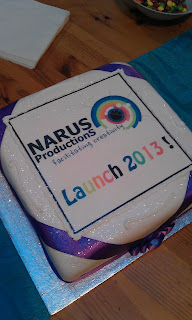I recently traveled back to
my native California, and while I was there couldn’t help doing a bit of
research. Arts funding is a whole different ballgame in the USA, where we don’t
have anything like the Arts Council. Most mid-large scale theatre companies are
10% (or less) grant funded (as opposed to the norm of 50% or more in the UK).
Independent productions and start up companies have even less of a chance, and
tend to rely primarily on crowd funding and box office splits.
One of my favorite case
studies is California Shakespeare Theatre, who produce four shows every summer
in their outdoor theatre, and run a year-round education programme of community
workshops. They have an operating budget of around $4 million, broken down as
follows:
8% Grant Funded
(Foundation and Government)
47% Earned income
27% Individual Giving
3% Corporate
Sponsorship
Even though the corporate
sponsorship is the smallest of those figures it is that which I’d like to focus
on (and remember, 3% of 4million is still £120,000, so hardly a figure to be
sniffed at!). They have a rather unique and highly effective way of taking
advantage of that relationship and creating a community that keeps the sponsors
coming back again and again.
At the start of every
performance there is a curtain speech, usually given by the Artistic Director
Jonathan Moscone. After welcoming
the audience and dealing with the obligatory health and safety notices he
thanks the main corporate sponsors and points out any donors who happen to be
in the audience. Regular sponsors include Bart (our local equivalent of the
Underground), classical radio, and usually a couple hotels and airlines. But
the best bit comes at the end. He
invites the audience to join in thanking ‘our longest standing sponsor.’ The
regulars are well trained and a couple hundred voices chime in with “Peet’s Tea
and Coffee!!!”
Is it tacky? Possibly. But
is also builds a sense of community, and leads to a friendly chatter with a
neighbour who may be new and have not picked up the name. It works in favour of
all parties. Throughout the year I’m more likely to go to Peet’s than anywhere
else, because I know they support my favorite local Shakespeare company. And
when I go to Peet’s I inevitably think of Cal Shakes, and remember that I should
buy my tickets soon.
I have returned from the
trip incredibly keen to see if this model can be replicated this side of the
pond. There is not (yet) quite as strong a culture of corporate giving, but
with cuts to ACE funding and a rise in the perceived importance of Corporate
Social Responsibility (you can add ‘CSR’ to the ever-increasing list of
acronyms you should know) it’s worth a shot. Here are some very basic tips for
how to start a these relationships:
- Identify sponsors that are relevant to you, whether because of locality or topical interest in your work.
- Identify what they will get in return. Will you drive more customers to their business? Get more people to subscribe to their services? Raise awareness of their cause?
- Have a clear action plan and let them know how you will achieve this (programme adds, speeches, offering coupons for their business… or more creative ways)
- Offer exclusivity. Having both Costa and Starbucks as sponsors is probably a conflict of interest.
- Keep in mind the scale of what you are doing. Depending on the size of your audience and the length of your run, you are probably reaching hundreds rather than thousands of people, and so think about a realistic return on investment. If they put £1000 in are they likely to get that much value back (either monetarily or through social cred)?
- Remember to thank them! Let them know about the success of your production and what a difference the contribution made. Do this both personally and publicly. They are much more likely to give again. And thank them even if they say no (though maybe not publicly… that’ll just come across as sarcasm.)
The worst you can be told
is no. And you probably will be told no a lot. The hard truth is that there are
a lot of people out there looking for money. But persistence hopefully pays, so
why not give it a try?
And let us know about your
successes! Or let us know if you have an idea and want help putting it into
practice!


